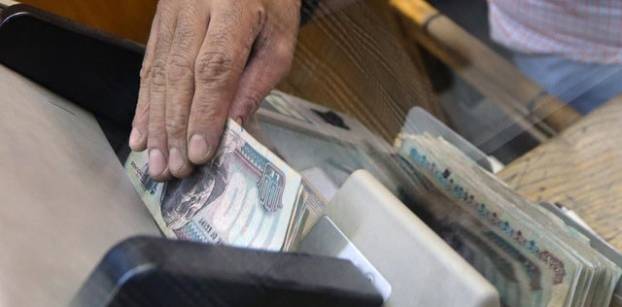Egypt says happy with impact of currency float, inflows surging

An employee counts Egyptian pounds in a foreign exchange office in central Cairo, Egypt, November 3, 2016. REUTERS/Mohamed Abd El Ghany
DUBAI, Nov 16 (Reuters) - Egyptian authorities are happy with financial market movements since they floated the pound, and inflows of foreign exchange into the banking system are surging, deputy finance minister Ahmed Kouchouk said on Wednesday.
The Egyptian pound fell to near 18 to the U.S. dollar after its peg of 8.8 was scrapped on Nov. 3 in an effort to lure more foreign investment and shut a black market in dollars. In the last few days it has become more stable at around 15.50.
Kouchouk, speaking to a small group of foreign reporters at a financial conference in Dubai, said volatility was natural after a currency float and the pound's moves were "not a surprise or concern."
"Banks are competing, we are seeing that rates are fluctuating, each bank has its own buying and selling rate - all the ingredients of a flexible, efficient system are there now," said Kouchouk, an architect of Egypt's economic reform plan.
He described the central bank as "very happy with what's happening."
Data from the central bank shows Egypt's banking system has received about $1.5 billion in net hard currency inflows since the float, around 10 to 15 times the level of weekly inflows before the pound was freed, Kouchouk said.
He called that number encouraging and predicted inflows would increase further.
Foreign holdings of government securities - including Treasury bills and bonds - have increased by between $700 million and $900 million since the float, Kouchouk estimated. Some of that rise is due to foreign money that was already inside Egypt but some is due to new money from abroad, he said.
As part of its effort to obtain more hard currency, Egypt plans to return to the Eurobond market. Authorities expect to make a decision early next week on when they will hold investor roadshows for the first issue, Kouchouk said.
He declined to give a number for the size of the debt sale, saying it would depend on market conditions given recent volatility in global fixed income prices.
The pound's depreciation promises to raise the government's costs for importing wheat and energy, potentially slowing its drive to cut a budget deficit that totalled 12.2 percent of gross domestic product in the last fiscal year through June.
But Kouchouk said the depreciation would also help government revenues by inflating some payments such as Suez Canal revenues, and that its fiscal reforms had incorporated expectations for depreciation.
For these reasons a weaker pound will not have a big impact on state finances and the government is still on track to cut its primary budget deficit, which excludes interest payments, by about two-thirds in the current fiscal year from last year's 3.4 percent of GDP, and to eliminate it next year, he said.









facebook comments